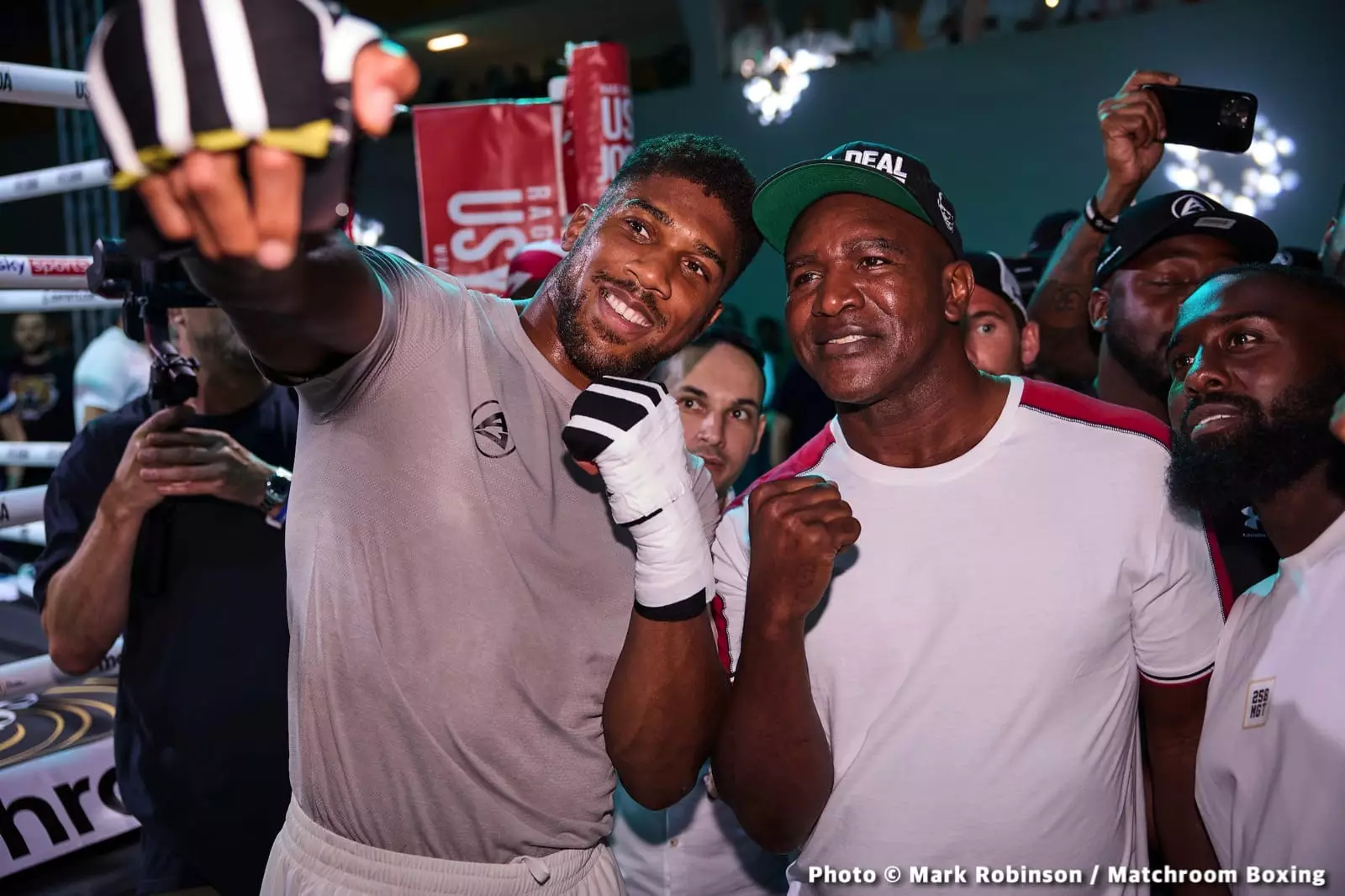During the recent Ring Magazine Awards ceremony held in London, Evander Holyfield, the former unified cruiserweight and heavyweight champion, engaged in a compelling dialogue with Radio Rahim from Seconds Out. In this conversation, Holyfield expressed his frustration regarding his status in boxing history, particularly in comparison to the legendary Muhammad Ali. As the only four-time heavyweight champion, Holyfield argues that his achievements should place him at the pinnacle of heavyweight boxing, surpassing Ali’s storied legacy. Holyfield’s reflections underscore a complex narrative surrounding the definition of greatness in the sport of boxing.
Holyfield’s claim of being the only four-time heavyweight champion of the world is indeed noteworthy. His reigns spanned from 1990 to 1992, where he became an undisputed champion, then from 1993 to 1994 holding the WBA and IBF titles, and later from 1996 to 1999, before his final run in 2000 for the WBA title. These achievements are significant milestones that cement his place within the annals of boxing history. However, Holyfield’s assertion that he deserves the title of the greatest heavyweight champion because of the sheer number of titles he won oversimplifies the criteria traditionally associated with greatness in boxing.
It is essential to consider the context of Holyfield’s victories. While he defeated numerous notable opponents such as Buster Douglas, Riddick Bowe, and George Foreman, the assessment of greatness involves more than merely tallying championship belts. The prominence of who a fighter competes against often carries more weight than the quantity of titles won. For instance, Ali’s preeminent status is supported not only by his three heavyweight title victories but also by the quality of fighters he faced, including Sonny Liston, Joe Frazier, and George Foreman during their prime years. This distinction speaks volumes about the caliber of competition and the narrative of a fighter’s career.
Another factor to contemplate is the landscape of boxing during Ali’s era compared to Holyfield’s. Ali fought in a time when there was a singular recognized heavyweight champion, which granted a significant degree of uniformity to his accomplishments. In contrast, Holyfield competed in a fragmented era with multiple titles available—WBA, IBF, and later WBO—resulting in a broader arena for champions to emerge. Critics may argue that this dilution of the heavyweight championship landscape weakens Holyfield’s claim to the title of the greatest, as it allows for a greater number of champions, thus potentially reducing the overall competition level.
Exploring the contemporary metrics utilized to evaluate greatness reveals further nuances. Modern boxing enthusiasts might cite the number of alphabet titles won as indicative of a fighter’s success, which could unfairly elevate more recent boxers like Floyd Mayweather or Canelo Alvarez due to their impressive title collections. However, as history suggests, the most critical criterion remains the opponents defeated and the inherent toughness involved in those contests. In this vein, Holyfield’s victories should indeed receive recognition, yet they should be contextualized rather than compared directly to those of Ali.
Holyfield’s candid reflections on his status reveal a deep-seated longing for recognition that transcends mere statistics. It is commendable that he actively seeks acknowledgment for his unique accomplishments and contributions to the sport. Although there is no denying that he remains an all-time great in heavyweight boxing, it would be prudent for fans and pundits alike to dissect accomplishments through a lens that values context, competition, and historical significance.
While Evander Holyfield certainly deserves enhanced recognition for his exceptional career and the historical significance of being the first four-time heavyweight champion, achieving the title of “greatest” requires a more nuanced understanding—one that considers the quality of opposition and the era in which a champion competed. Holyfield’s animated dialogue at the awards demonstrates his passion for his legacy, reminding us that discussions of greatness in boxing will persist as long as the sport itself endures.

